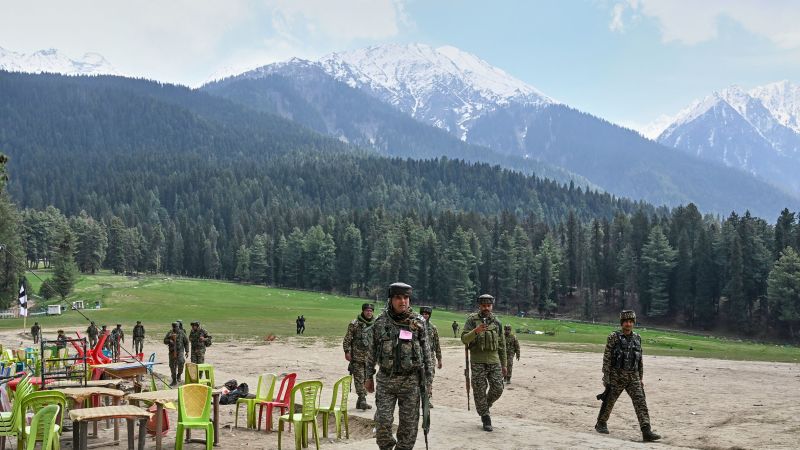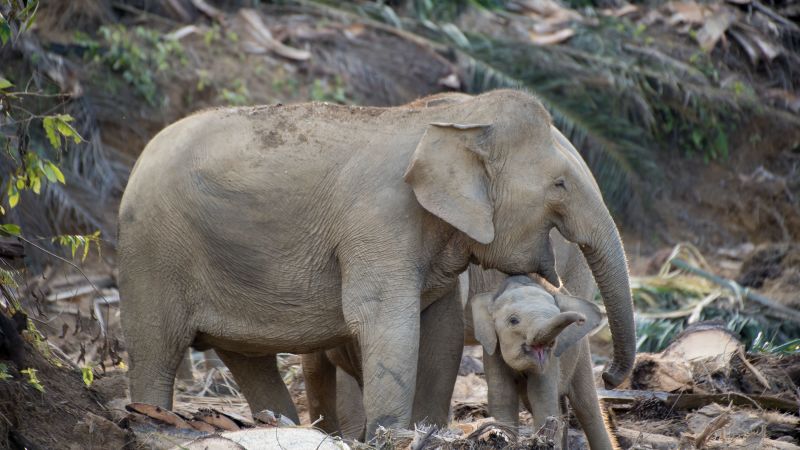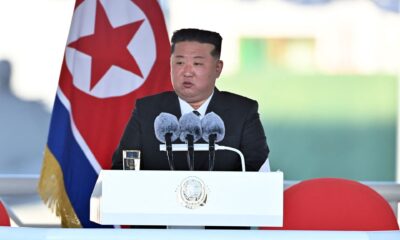CNN
—
Tensions between India and Pakistan have escalated further after a top Pakistani official claimed early Wednesday to have “credible intelligence” that New Delhi will carry out a military action against Islamabad within the next two days.
The claim came as both the United States and China urged restraint.
“Pakistan has credible intelligence that India intends carrying out military action against Pakistan in the next 24-36 hours,” Pakistan’s Information Minister Attaullah Tarar said in an unusual middle of the night post on X. He did not elaborate on what evidence Pakistan had used to make the claim.
Tarar’s comments come just one week after militants massacred 26 tourists in the mountainous town of Pahalgam in Indian-administered Kashmir, a rampage that has sparked widespread outrage.
India has accused Pakistan of being involved in the attack — a claim Islamabad denies. Pakistan has offered a neutral investigation into the incident. CNN has contacted India’s defense ministry for response to Tarar’s claims.
The Director Generals of Military Operations of both countries spoke over a hotline on Tuesday, India’s state broadcaster and Pakistan’s military confirmed on Wednesday – the first conversation between the military officials since the Pahalgam attack.
Kashmir, one of the world’s most dangerous flashpoints, is controlled in part by India and Pakistan but both countries claim it in its entirety.
The two nuclear-armed rivals have fought three wars over the mountainous territory that is now divided by a de-facto border called the Line of Control since their independence from Britain nearly 80 years ago.
Last week’s attack sparked immediate widespread anger in India and Prime Minister Narendra Modi is under tremendous pressure to retaliate with force.
India conducted airstrikes inside Pakistan in 2019 following a major insurgent attack on paramilitary personnel inside Indian-administered Kashmir. It was the first such incursion into Pakistan’s territory since a 1971 war between the two neighbors.
The latest attack on tourists in Kashmir has sparked fears that India might respond in a similar way.
Modi vowed to pursue the attackers “to the ends of the earth” in a fiery speech last week. The massacre set off an escalating tit-for-tat exchange of hostilities between the two countries over the past week.
Pakistan’s Tarar on Wednesday claimed any “military adventurism by India would be responded to assuredly and decisively.”
US and China react
US Secretary of State Marco Rubio spoke with India’s external affairs minister and Pakistan’s prime minister, urging the two countries to work together to “de-escalate tensions,” according to State Department readouts of the two calls on Wednesday.
In his call with Pakistan’s Prime Minister Shehbaz Sharif, Rubio “spoke of the need to condemn the terror attack on April 22 in Pahalgam” and urged Pakistani officials’ cooperation in investigating the attack in the Kashmiri town. Rubio also encouraged Sharif to “re-establish direct communications” with India, the readout said
New Delhi is considered an important partner for Washington as it seeks to counter China’s influence in the Indo-Pacific region. Pakistan is also considered a key US partner.
China, which also claims control of part of Kashmir and has grown closer to Pakistan in recent years, has also urged restraint.
China’s foreign minister Wang Yi spoke to Pakistan’s deputy prime minister and foreign minister Ishaq Dar last week, saying any conflict between Pakistan and India would “not serve the fundamental interests of each side” and posed a risk to regional security, state broadcaster CGTN reported.
India and China’s relationship has proved fractious in recent years, with clashes at their contested border. Meanwhile, Beijing and Islamabad have strengthened ties, with China continuing to invest in Pakistan under its Belt and Road Initiative.
In the days after the Pahalgam attack, both countries swiftly downgraded ties with each other.
India canceled visa of Pakistani nationals, and Pakistan responded with a reciprocal move. Both countries have told diplomats and citizens to return home before April 30.
India has also suspended its participation in a crucial water-sharing pact and both sides have now banned each other’s airlines from their respective air spaces.
The Indus Water Treaty has been in force since 1960 and is regarded as a rare diplomatic success story between the two fractious neighbors.
The treaty governs the sharing of water from the enormous Indus River system, a vital resource supporting hundreds of millions of livelihoods across Pakistan and northern India. The Indus originates in Tibet and flows through China and Indian-controlled Kashmir before reaching Pakistan.
Islamabad has called any attempt to stop or divert water belonging to Pakistan an act of war.
This week, New Delhi and Islamabad have both been flexing their military might.
Pakistan shot down an Indian drone that was used for “espionage” in the disputed Kashmir region on Tuesday, Pakistani security sources told CNN.
Two days earlier, India’s navy said it had carried out test missile strikes to “revalidate and demonstrate readiness of platforms, systems and crew for long range precision offensive strike.”
Tensions have been also been simmering along the Line of Control and gunfire has been exchanged along the disputed border for six straight nights.
This is a developing story and will be updated.

























